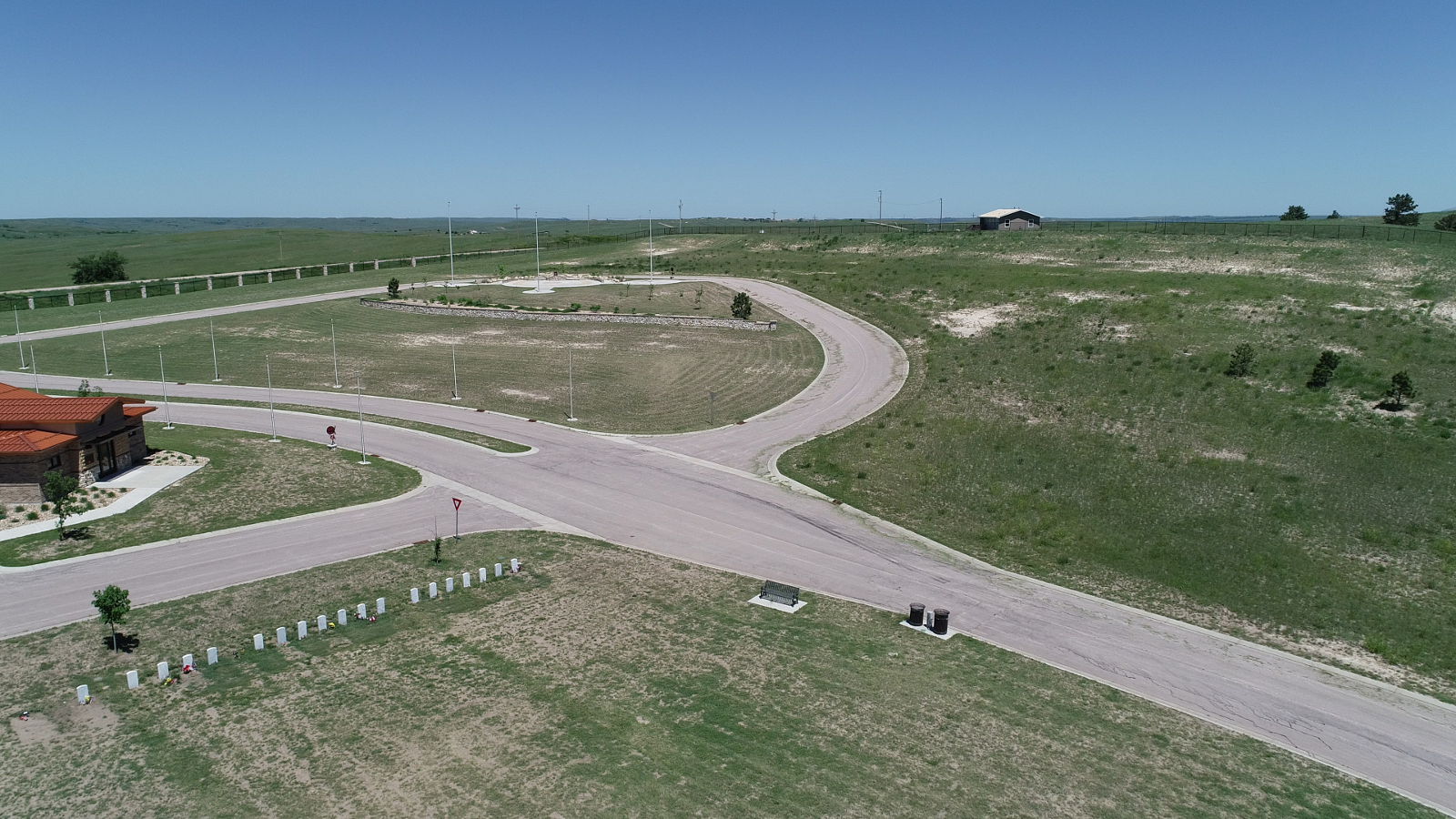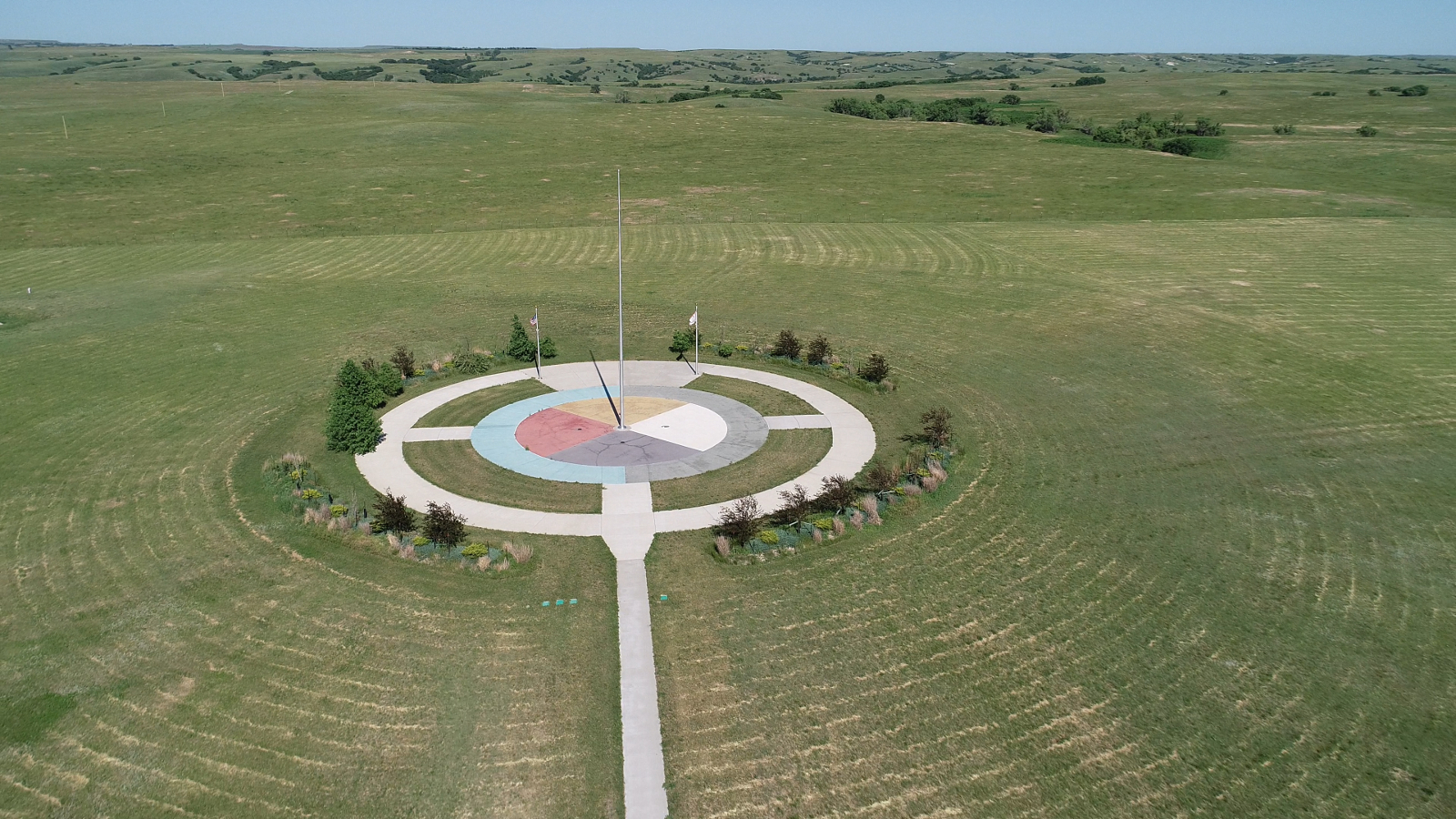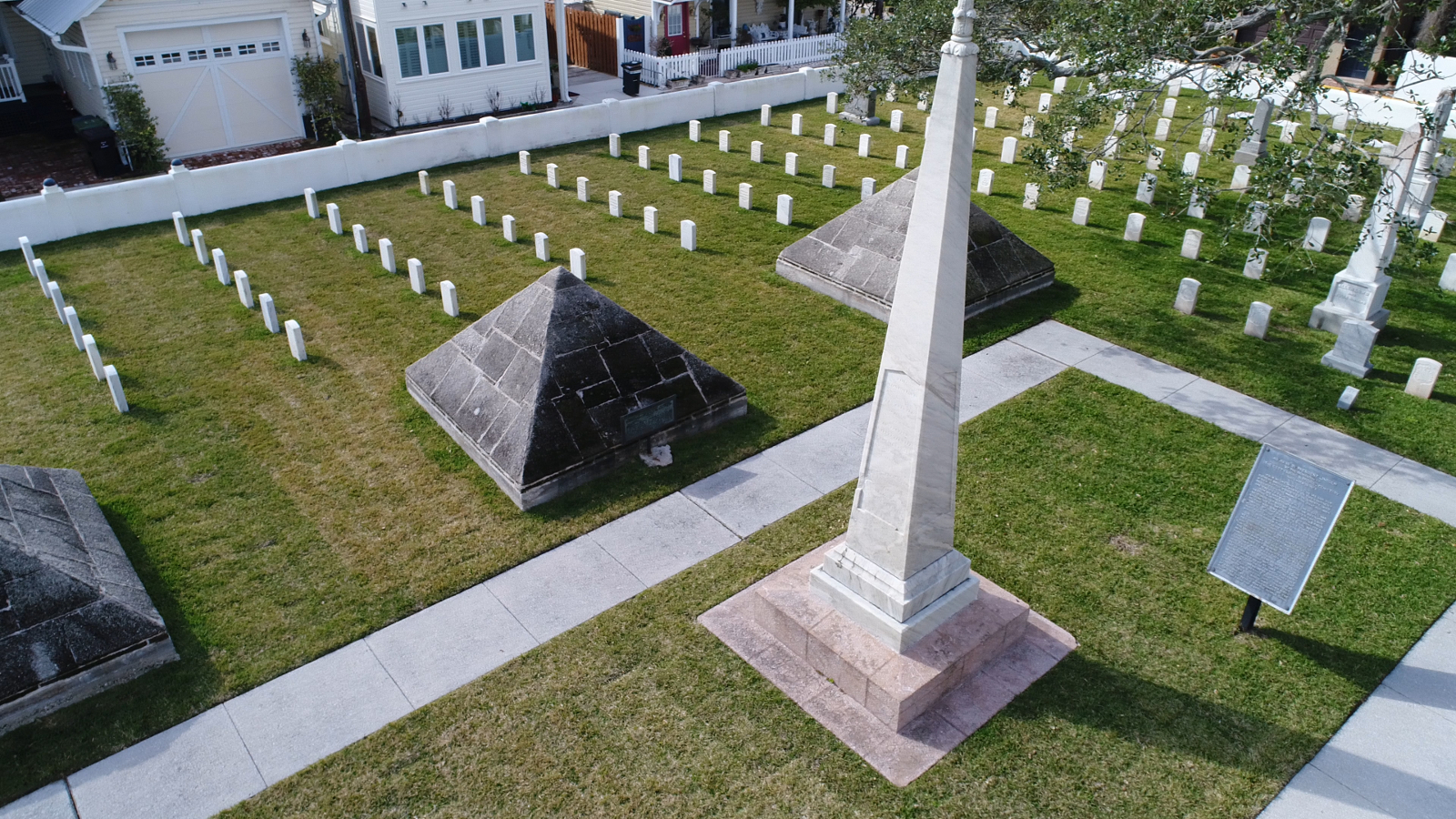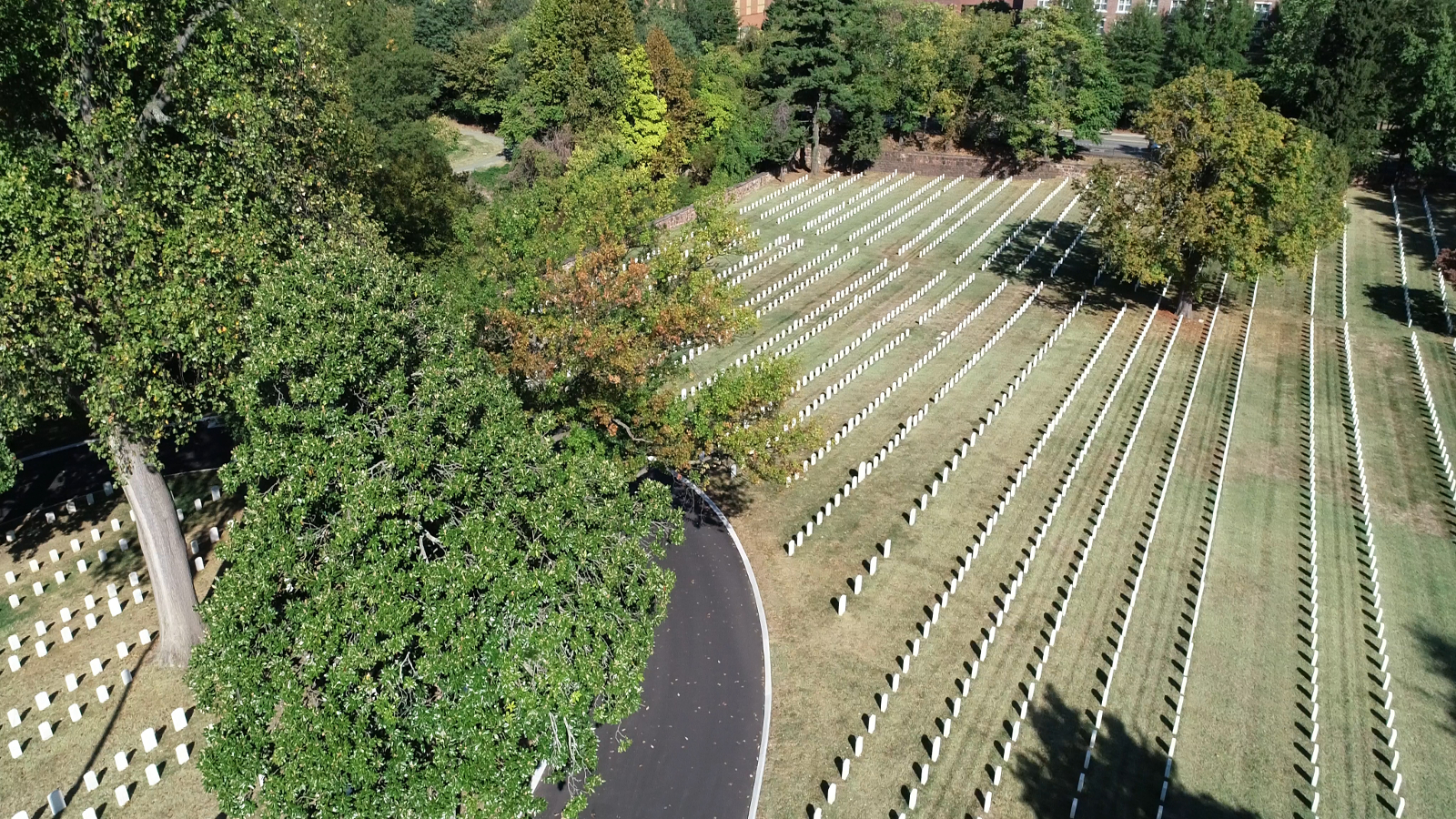
Alexandria National Cemetery
The cemetery is one of the original 14 national cemeteries established in 1862. The initial cemetery consisted of approximately four acres known as Spring Garden Farm. The first burials were soldiers who died during training or from disease in the numerous hospitals around Alexandria.
Access Map »
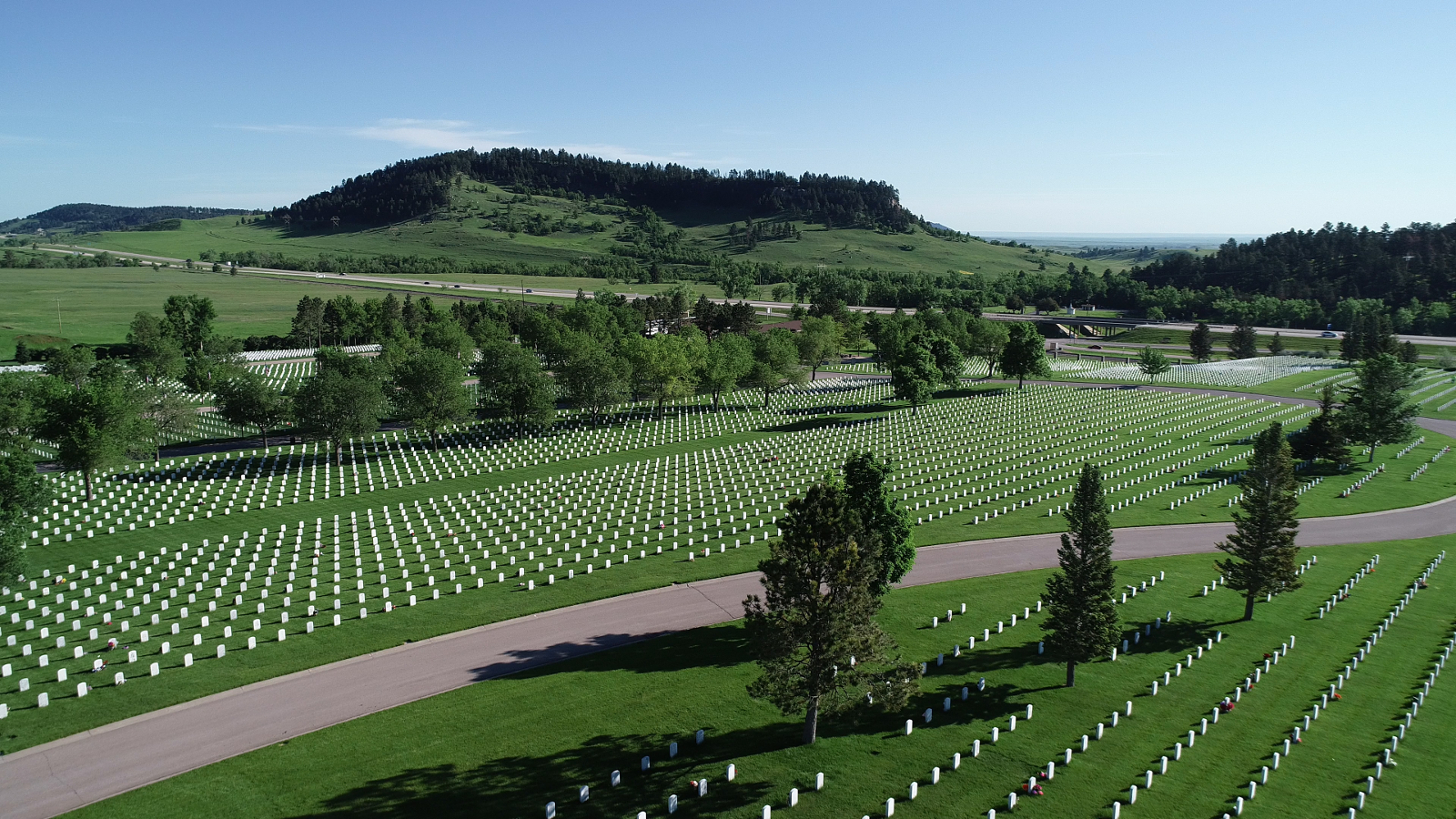
Black Hills National Cemetery
The cemetery was established in 1948 and is located on the verge of the Black Hills. The discovery of gold in the Black Hills in 1874 permanently changed the region. The earliest burials were soldiers who died during the Great Plains wars. The cemetery currently comprises 105.9 acres.
Access Map »
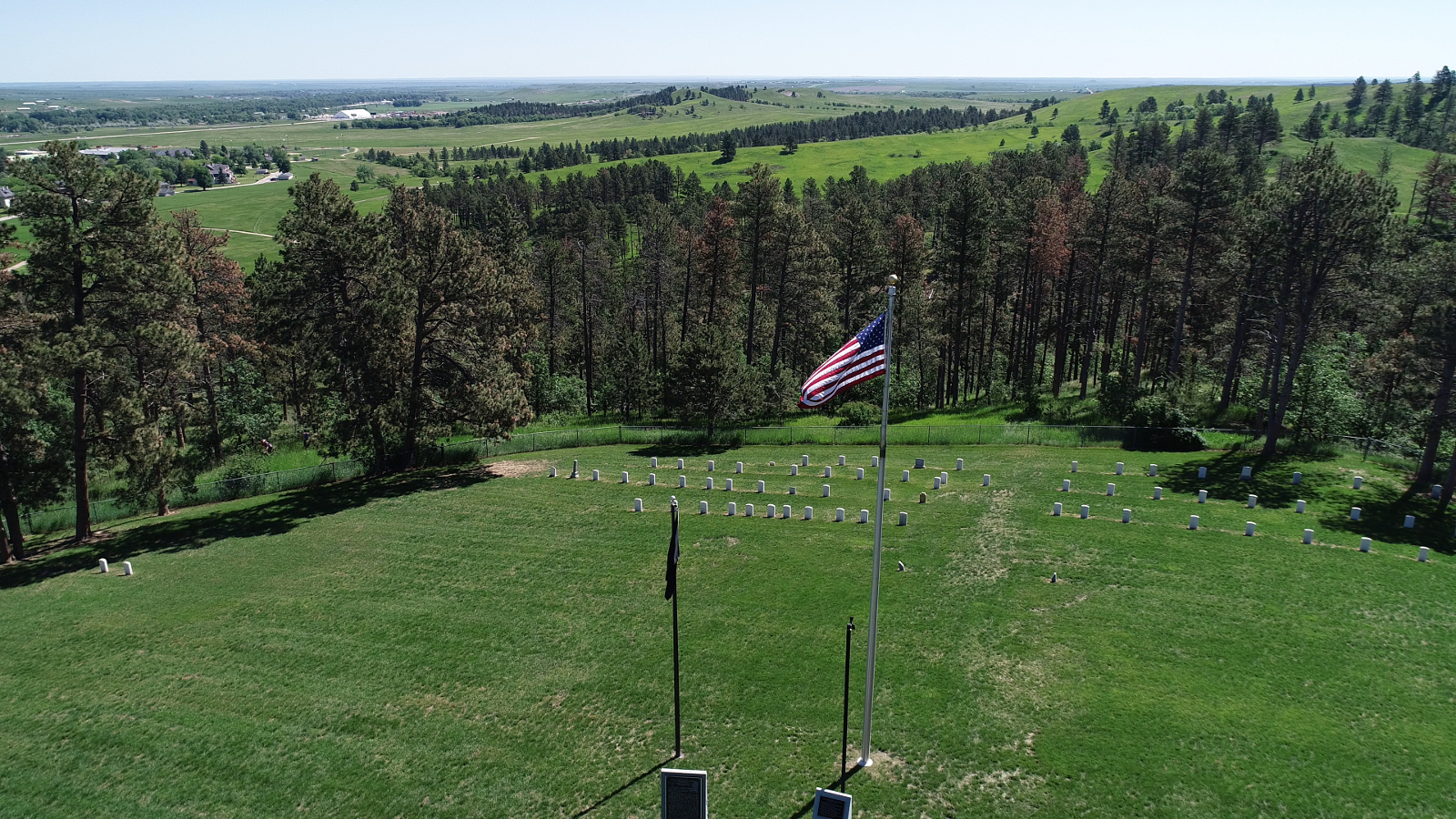
Fort Meade National Cemetery
The Quartermaster Corps established the 2-acre cemetery on September 24, 1878, and the first interment was that day. The cemetery closed in 1948 after approximately 200 interments.Fort Meade National Cemetery contains both military headstones and private monuments.
Access Map »
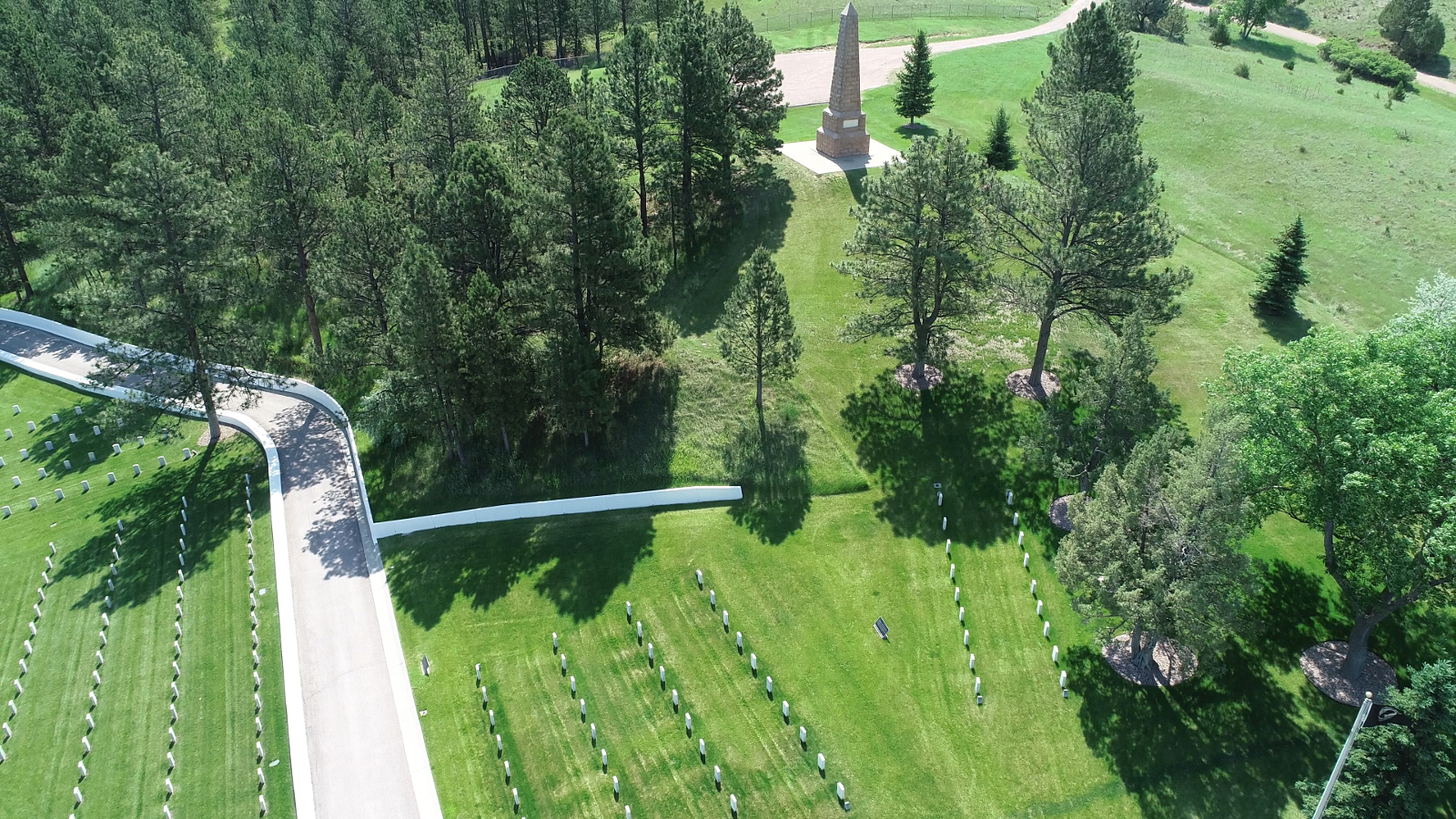
Hot Springs National Cemetery
In 1907, the Battle Mountain Sanitarium, a National Home for Disabled Volunteer Soldiers, was completed in Hot Springs. A cemetery was established for the interment of veterans who died while residing at the home. This cemetery became Hot Springs National Cemetery in 1973.
Access Map »




